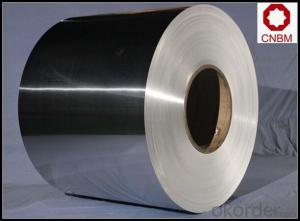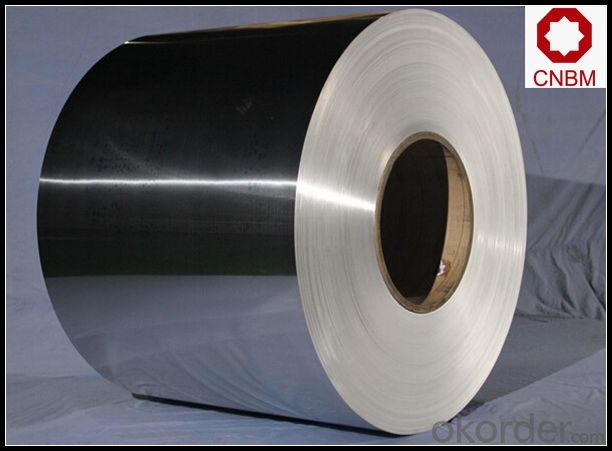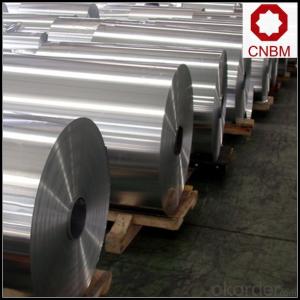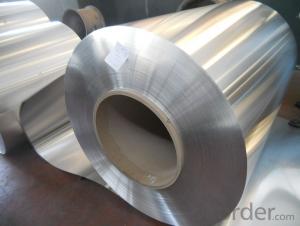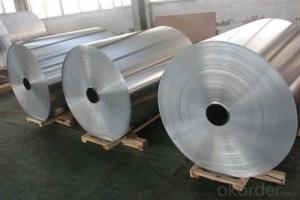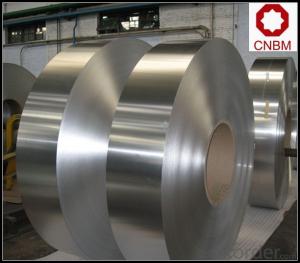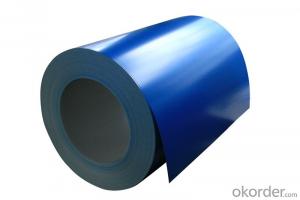Mill Finish Aluminum Coil for Channel Letter
- Loading Port:
- Shanghai
- Payment Terms:
- TT OR LC
- Min Order Qty:
- 5 m.t.
- Supply Capability:
- 10000 m.t./month
OKorder Service Pledge
OKorder Financial Service
You Might Also Like
Specification
1. Specification of Mill Finish Aluminum Coil for Channel Letter
1) Alloy | 1050, 1060,1100, 3003 3004 3105 3A21 5005 5052 etc |
2) Temper | O/H12/H14/H1/H18/H32/H34/H36/H38//H111/H112/H116/H321/T6/T651/T3/T351 etc |
3) Thickness | 0.1mm to 6mm |
4) Width | 20mm to 3300mm |
5) Coil weight | 100kgs to 6 tons depends on actual requirement |
6) Core material | Aluminum or paper |
7) Coil Inner diameter | 75mm, 150mm, 200mm, 300mm, 405mm, 505mm or as required |
8) Protective film can be added
2. Application of Mill Finish Aluminum Coil for Channel Letter
(1).Interior: wall cladding, ceilings, bathrooms, kitchens and balconies, shutters, doors...
(2).Exterior: wall cladding, facades, roofing, canopies, tunnels,column covers , renovations...
(3).Advertisement: display platforms, signboards, fascia, shop fronts...
3. Feature of Mill Finish Aluminum Coil for Channel Letter
*Such coil is specially designed to replace aluminum ingot, due to the high export tax of aluminum ingot, the coil has better price than ingot.
*This type of coil can fit customer's remelting furnace just like ingot, no need to make any change to the production line that was previously used for ingot. The standard coil size and weight is very suitable for the feed gate of furnace.
*This type of coil causes less material wastage than ingot when remelted.
*Our coil is made directly from ore, no need to go though the ingot making process, quality is much better than other suppliers who use ingot scrap to make coil.
Be free from Oil Stain, Dent, Inclusion, Scratches, Stain, Oxide Dicoloration, Breaks, Corrosion, Roll Marks, Dirt Streaks and other defect which will interfere with use
4. Certificate
SGS and ROHS(if client request, paid by client), MTC(plant provided), Certificate of Origin(FORM A, FORM E, CO), Bureau Veritas and SGS (if client request, paid by client), CIQS certificate
5. Image of Mill Finish Aluminum Coil for Channel Letter
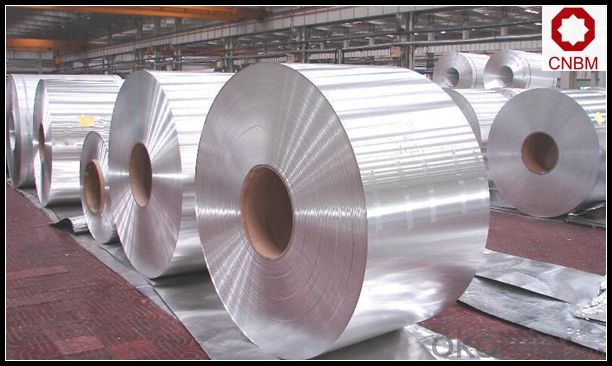
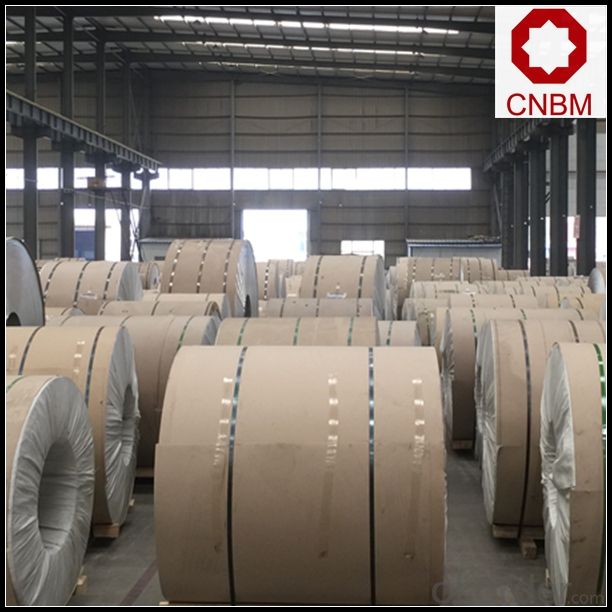
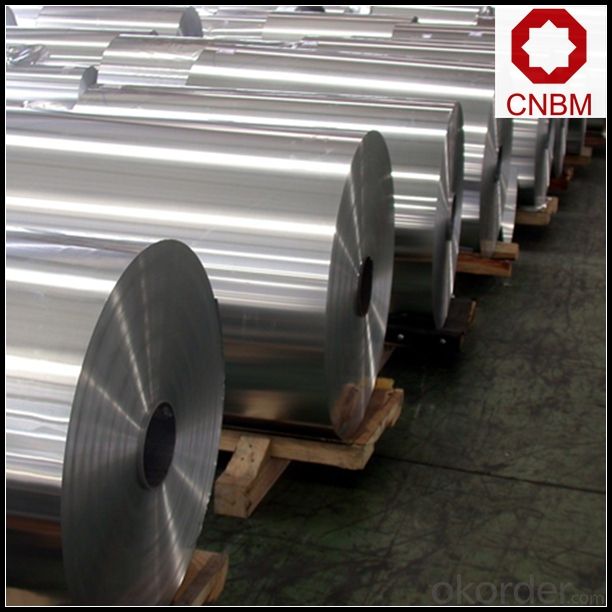
6. Package and shipping of Mill Finish Aluminum Coil for Channel Letter
eye to wall
eye to the wall
with wood pallet (wooded case also available)
7. FAQ
1) What is the delivery time?
Dpends on actual order, around 20 to 35 days
2)What is the QC system:
We have QC staff of 20 persons and advanced equipment, each production is with MTC traced from Aluminum ingot lot.
3) What market do you mainly sell to?
Australia, America, Asia, Middle East, Western Europe, Africa etc
- Q: How are aluminum coils used in the production of automotive radiators?
- Aluminum coils are used in the production of automotive radiators as they provide excellent heat transfer properties. These coils are typically made from aluminum alloy, which is lightweight, corrosion-resistant, and has high thermal conductivity. The coils are formed into a specific shape and then attached to the radiator's core. As coolant flows through the coils, heat from the engine is transferred to the aluminum, which efficiently dissipates it. This helps in cooling the engine and maintaining its optimal operating temperature. Overall, aluminum coils play a crucial role in enhancing the efficiency and performance of automotive radiators.
- Q: I want to remove melted aluminium piston material from an engine cylinder with burning a hole in the cylinder!
- Aluminum reacts with sodium hydroxide, and will dissolve in a basic solution, while the steel cylinder liner will be unaffected...in theory. This is totally impractical though. You need to machine out the damaged piston, either by boring or grinding the material away.
- Q: This question asks for methods to determine the age of an aluminum coil, distinguishing between new and old.
- <p>To determine if an aluminum coil is new or old, you can look for several indicators: the surface condition, such as scratches or signs of wear; the quality of the protective coating, if any, which may degrade over time; the manufacturing date or batch number, if available; and the overall appearance and shine. New coils typically have a smooth, shiny surface with no significant scratches or dents, and a consistent protective coating. Old coils may show signs of oxidation, discoloration, or other forms of degradation. Additionally, testing the coil's physical properties, such as tensile strength, can provide clues about its age, as these properties can degrade over time.</p>
- Q: What are the benefits of using aluminum coils?
- There are several benefits of using aluminum coils. Firstly, aluminum is a lightweight material, making it easier to handle and install. Secondly, aluminum is highly resistant to corrosion, ensuring the durability and longevity of the coils. Additionally, aluminum coils have excellent heat transfer properties, allowing for efficient cooling or heating. Lastly, aluminum is a sustainable and recyclable material, making it an environmentally friendly choice.
- Q: What is the typical electrical resistivity of aluminum coils?
- The typical electrical resistivity of aluminum coils is approximately 2.65 x 10^-8 ohm-meters. Aluminum is known for its low resistivity, making it an excellent choice for electrical conductors. The low resistivity allows for efficient transfer of electric current through the coils, minimizing energy loss and heat generation. This property makes aluminum coils widely used in various electrical applications, such as transformers, motors, and generators.
- Q: Are aluminum coils compatible with other materials?
- Indeed, other materials can be used in tandem with aluminum coils. Aluminum, being a versatile and extensively utilized substance, readily blends with various materials for different purposes. Take, for instance, the utilization of aluminum coils alongside copper tubing in air conditioning and refrigeration systems to amplify heat transfer efficiency. Furthermore, aluminum coils can be coated or layered with polymers or paints to furnish supplementary safeguard against corrosion, enhance visual appeal, or elevate specific performance attributes. Consequently, aluminum coils exhibit compatibility with a multitude of materials, rendering them apt for an array of applications within industries like construction, automotive, aerospace, and beyond.
- Q: What are the tensile strength properties of aluminum coils?
- The tensile strength properties of aluminum coils are known to be quite high. Aluminum, as a material, possesses excellent strength-to-weight ratio, which makes it suitable for various applications that require strength coupled with lightweight properties. The specific tensile strength of aluminum coils can vary depending on the alloy and temper used. Generally, aluminum coils have a tensile strength ranging from 110-310 MPa (megapascals), or approximately 16,000-45,000 psi (pounds per square inch). These values indicate the maximum amount of tensile stress that the aluminum coil can withstand before it breaks or deforms permanently. It is important to note that the tensile strength can be further enhanced by heat treatment processes such as cold rolling or annealing. Overall, aluminum coils are recognized for their impressive tensile strength properties, which contribute to their wide usage in industries like aerospace, automotive, construction, and manufacturing.
- Q: How are aluminum coils annealed?
- Aluminum coils are typically annealed through a process known as heat treatment. This involves heating the coils to a specific temperature and then slowly cooling them down. The purpose of annealing is to soften the aluminum and improve its ductility, making it easier to work with. The first step in annealing aluminum coils is to clean them thoroughly to remove any contaminants. The coils are then placed in a furnace, which is heated to the desired temperature. The temperature and duration of the annealing process depend on the specific grade and thickness of the aluminum being treated. Once the coils reach the desired temperature, they are held at that temperature for a predetermined amount of time. This allows for the internal structure of the aluminum to become more uniform and relieves any internal stresses that may have developed during the manufacturing process. After the annealing process is complete, the coils are slowly cooled down in the furnace. This slow cooling is important to prevent the formation of any new internal stresses. Once the coils have cooled to room temperature, they are ready for further processing or use. In some cases, a process known as quenching may be used after annealing. Quenching involves rapidly cooling the aluminum by immersing it in a quenching medium, such as water or oil. This can help to further improve the mechanical properties of the aluminum, such as its strength and hardness. Overall, the annealing process for aluminum coils is a carefully controlled heat treatment that aims to improve the metal's properties and make it more suitable for various applications.
- Q: Are aluminum coils suitable for architectural sunshades?
- Indeed, architectural sunshades can be made using aluminum coils. The lightweight quality, durability, and resistance to corrosion make aluminum a favored material for sunshades. With aluminum coils, a wide range of shapes and designs can be achieved, providing flexibility in architectural design. Moreover, aluminum is easy to fabricate and install, making it a convenient choice for architectural projects. Additionally, aluminum possesses exceptional thermal properties that enable effective heat reflection and reduction of solar gain, thereby enhancing energy efficiency in buildings. All in all, aluminum coils emerge as a suitable and adaptable choice for architectural sunshades.
- Q: How do aluminum coils contribute to thermal management?
- Aluminum coils play a crucial role in thermal management due to their excellent heat transfer capabilities. Aluminum has a high thermal conductivity, which means it can efficiently transfer heat from one area to another. This property is essential in various applications that require effective thermal management, such as air conditioning systems, refrigeration units, and heat exchangers. In air conditioning systems, aluminum coils are commonly used in the condenser and evaporator coils. The condenser coil dissipates heat from the refrigerant to the surrounding air, while the evaporator coil absorbs heat from the indoor air to cool it down. The high thermal conductivity of aluminum allows for efficient heat transfer between the refrigerant and the surrounding air, resulting in faster and more effective cooling. Similarly, in refrigeration units, aluminum coils are utilized in the evaporator coils to remove heat from the interior space. The aluminum coils help to extract heat from the refrigerated area and transfer it to the outside environment, maintaining a lower temperature inside the unit. Aluminum coils also find application in heat exchangers, which are used in a wide range of industries, including automotive, power generation, and HVAC. Heat exchangers are devices that transfer heat between two or more fluids, often with different temperatures. The high thermal conductivity of aluminum enables efficient heat exchange between the fluids, improving overall system performance and energy efficiency. Moreover, aluminum coils are lightweight and resistant to corrosion, making them highly durable and suitable for long-term use in harsh environments. These properties further enhance their contribution to thermal management by ensuring reliable heat transfer and reducing the risk of system failure or efficiency loss. In summary, aluminum coils are instrumental in thermal management systems as they facilitate efficient heat transfer, contribute to faster cooling or heating processes, and enhance overall system performance. Their high thermal conductivity, lightweight nature, and corrosion resistance make them a preferred choice in various applications where effective thermal management is essential.
Send your message to us
Mill Finish Aluminum Coil for Channel Letter
- Loading Port:
- Shanghai
- Payment Terms:
- TT OR LC
- Min Order Qty:
- 5 m.t.
- Supply Capability:
- 10000 m.t./month
OKorder Service Pledge
OKorder Financial Service
Similar products
Hot products
Hot Searches
Related keywords
